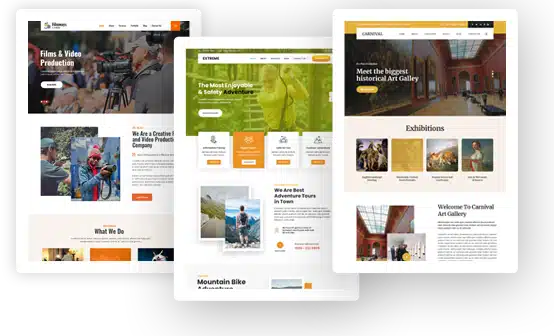Top CMS Features You Should need to know
Because there are so many CMS options on the market, choose which one to use can be a complicated and time-consuming task. However, choosing the wrong CMS to design your website might be a costly error.
A Content Management System (CMS) allows you to oversee the content, appearance, and functionality of your website without touching any underlying code, whether you’re building a corporate website, an ecommerce store, or a blog.
There are hundreds of Content Management Systems on the market, each with its own set of features to suit various corporate needs. To get the finest CMS for your company, make sure its features match your demands and objectives.
Let’s imagine you want to make your content more search engine friendly. Then you might wish to choose a platform with SEO capabilities built in. For example, using CMS Hub, you may obtain on-page SEO guidance while writing blog articles, landing pages, and other content.
Top CMS Features You Should need to know
-
Usage of Simple Dashboard
The admin dashboard is at the heart of every CMS. From your CMS dashboard, you should be able to control all tasks related to content creation and distribution. These responsibilities include, among others, scheduling content, monitoring threats, analyzing user activity, installing modules and plugins, and examining performance metrics.
Take, for example, CMS Hub. In your dashboard, you may not only create multimedia blog entries and landing pages, but also manage, optimize, and track their success. You can evaluate website traffic reports in the same location you perform A/B testing, manage advertisements, and adjust URL redirects since has a Hubspot integration with marketing, sales, and service tools.
-
Ongoing Support and Integrated Solutions
The CMS you choose should give your team the freedom to integrate with any tool or technology that will be crucial to your company and marketing goals.
Make sure your Content Management System (CMS) is scalable enough to grow with your company. Some CMSs are more flexible than others, including APIs and connectors that may be expanded. The support team behind the CMS you chose provides ongoing upgrades and continuous delivery, resulting in this flexibility.
If this isn’t the case, that CMS is no longer a viable alternative because it doesn’t correspond with your company’s goals.
The last thing you need is to overhaul your entire website or IT Infrastructure because a disruptive technology or solution that could have an impact on your organization isn’t compatible with your CMS.
-
Controls for Publication
It’s likely that more than one individual will be publishing content on your site, regardless of the size of your company. You could assign authors only to the creation of draughts, editors to the evaluation of those draughts, and administrators to the scheduling and publication of those draughts.
As a result, publishing restrictions are critical in any CRM for Movers. You may create a pipeline for developing, approving, and releasing different creative materials by assigning different roles and degrees of access within your CMS. They also keep people from doing things on your site that they shouldn’t. For example, you wouldn’t want a new freelance writer to publish their own post without your permission.
-
Analytical Techniques
For every company with an in-house digital marketing staff, tracking website traffic with tools like Google Analytics has become standard procedure. Many firms, on the other hand, continue to ignore user behavior information.
The ability to develop content that is relevant and meaningful enough to make your brand and website relatable is the key to successfully engaging your clients and website visitors.
Your CMS should have built-in analytics or be able to connect to popular analytics solutions like Google Analytics. You’d like to be able to monitor these metrics straight from your dashboard.
-
Migration
It’s possible that you’ll be beginning from scratch with your CMS of choice. It’s also possible that you’re importing a big quantity of website files. Consider Content Management Systems with features to aid the process in this situation. If you’re switching from another CMS, some even provide secure migration services.
On the other hand, it’s worth considering how you can get your material out of the CMS. You may discover that the CMS isn’t the ideal fit for your business, or you may require a more scalable system as your company grows. In any event, be sure you know how to properly remove your data from the platform. Is the company willing to assist you, or are they obstructing your exit?
Best Hosting with CMS
With the Best Seedbox Hosting by GigaRapid and a Content Management System (CMS), you can swiftly generate, publish, and promote essential information that is central to your site’s goal, increasing efficiency and performance for both you and your visitors.
Instead of hours of painstaking coding by hand, content management systems offer a tempting shortcut to building and managing a website, with template-based designs and a user-friendly interface. Many people associate a CMS with WordPress, the worldwide behemoth that powers 36% of all websites.
Final Thoughts
While each CMS is different, there are certain common aspects to look for when choosing a platform for your company. You ‘ll be able to design and grow a site that attracts, engages, and delights your visitors if you utilize a platform that combines a user-friendly dashboard with built-in SEO tools and comprehensive security configurations, among other critical features.

